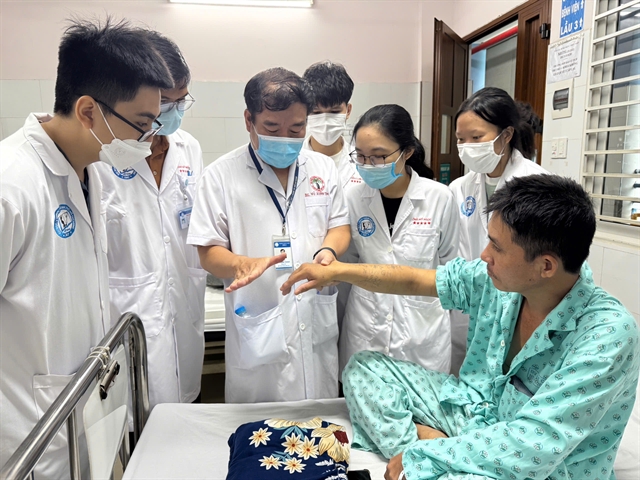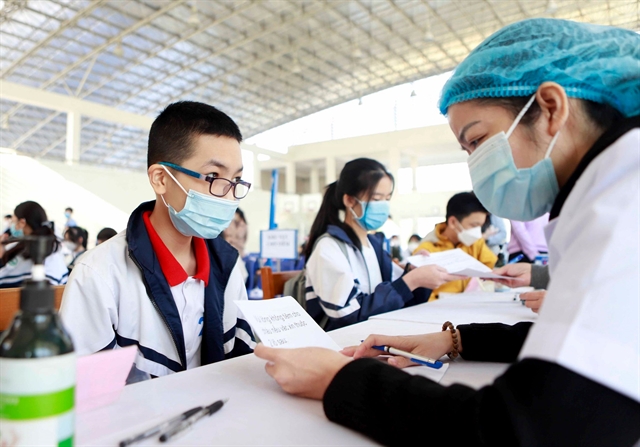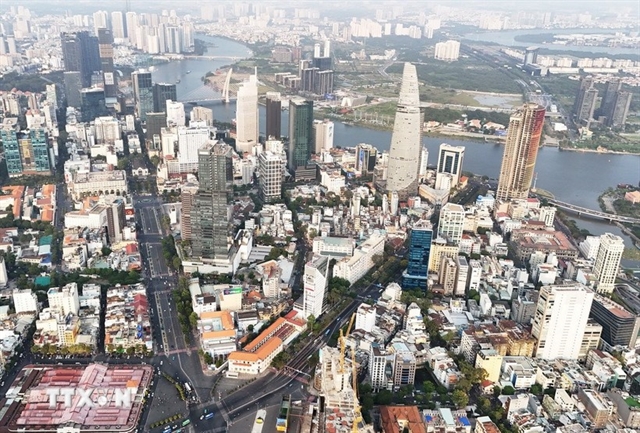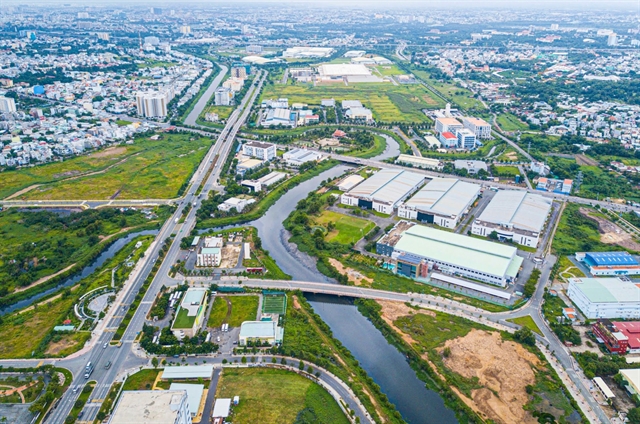 Opinion
Opinion

Head of the National Children’s Hospital’s Infection Prevention and Control Department Lê Kiến Ngãi spoke to Sức khỏe & Đời sống (Health & Life) newspaper about COVID-19 vaccinations for children.

|
| Pre-vaccination health screening for students of Vĩnh Yên Secondary School in the northern province of Vĩnh Phúc. — VNA/VNS Photo Hoàng Hùng |
Head of the National Children’s Hospital’s Infection Prevention and Control Department Lê Kiến Ngãi spoke to Sức khỏe & Đời sống (Health & Life) newspaper about COVID-19 vaccinations for children.
What are common reactions among children after getting vaccinated against COVID-19?
With published data, there is currently no statistically significant difference in post-injection responses of COVID-19 vaccines. In general, reactions after vaccination against COVID-19 are not common and even the so-called "very common reactions" are less than ten per cent.
Việt Nam is using the Comirnaty vaccine (Pfizer/BioNTech) to vaccinate children from 12 to 17 years old. Reported post-vaccination reactions with this vaccine include:
• Very common (appearing in about 1/10): swelling, pain at the injection site, a little more solid at the injection site than the surrounding area; muscle aches, headache, chills, fatigue and fever (maybe higher fever after the 2nd dose).
• Common (appearing in about 1/100): redness at the injection site, nausea, vomiting.
• Rare (appearing in about 1/1,000): swollen lymph nodes, arm pain, itching, or rashes.
• Extremely rare (appearing in less than 1/10,000): transient unilateral facial paralysis; or some manifestations of an allergy such as facial swelling.
Data collected from Pfizer’s trials did not record any cases of anaphylaxis after vaccination with Comirnaty. Myocarditis or thrombocytopenia were only recorded when the vaccine was used in very few cases.
According to the Ministry of Health's guidance on vaccination for children, there are some cases where children must be vaccinated at a hospital. Why is this?
The hospital system is always closely associated with the expanded vaccination system at all levels to ensure the ultimate goal of all children vaccinated to prevent diseases.
Healthy children, without underlying disease(s) or congenital disease(s) are vaccinated at the vaccination sites of the expanded immunisation programme.
Other children will be vaccinated at the hospital. The vaccination must meet criteria including correct, sufficient, timely and safe injections.
Therefore, for the current campaign of vaccination against COVID-19 for children, the Ministry of Health has guided examination and screening for injections in hospitals for some children. Hospitals at all levels are engaged in the vaccination campaign. This is one of the preeminent features of the healthcare system in Việt Nam.
According to the guidelines issued with Decision 5002/QD-BYT dated October 29, 2021, of the Ministry of Health on pre-vaccination screening for children, children aged 12-17 years old with the following health problems will be examined, screened and vaccinated at hospitals. First, children with congenital diseases or chronic diseases. Second, children with severe anaphylaxis (grade 3) with any previous allergen. Third, children with abnormal operations of the heart and lungs.
How are children screened at vaccination sites? How do you identify children who need to be vaccinated at hospitals?
Firstly, children have two health indicators of body temperature and pulse checked at the vaccination site. These two indicators help both the screening process for the child as well as the monitoring of the child after the injection. After that, they are thoroughly examined by medical staff, reporting their history of allergies including to previous COVID-19 vaccines as well as reactions to any allergens and other medical histories.
Medical workers assess the current health status to determine whether the child has an acute illness, progressive chronic disease(s), pre-existing congenital or chronic disease and detect other health problems if any. For the screening of children to be accurate, the children and their families must provide accurate and honest information about the child and his/her family.
Through the screening process, the child is determined to get vaccinated at the vaccination site immediately, vaccinated with caution or the child needs to be vaccinated at the hospital.
At the hospital, the child continues to be comprehensively evaluated, including tests or investigations if necessary, and vaccinations are performed under the support and monitoring of the emergency system.
What can be done to prevent post-vaccination reactions in children when vaccinated against COVID-19?
First of all, parents, caregivers and children themselves must understand that through testing results and practical use, the COVID-19 vaccine used for children is safe.
It is necessary to have good psychological preparation for the child before the injection.
For child vaccinations in general and vaccination against COVID-19, psychological issues play an important role. Children need to be well prepared physically, such as eating nutritious food, getting enough sleep, and not exercising too much right before the injection.
At the injection room, notify the medical staff of all health problems of the child, if any. Immediately after the injection, follow the instructions of medical staff to get an on-site 30-minute monitor. In the first days after the injection, rest, avoid strenuous activities. Children need an adult by their side for the first three days after the injection, observe their health and immediately notify the medical facility if there is any abnormality.
To reassure parents who are still worried and sceptical about COVID-19 vaccinations for children, I want to emphasise that the vaccine against COVID-19 that is selected for children is safe. The COVID-19 vaccination system is well organised with close coordination between the vaccination system and the hospital system. In addition, once one more person is vaccinated, the vaccine coverage will increase, paving the way for herd immunity. So the best vaccine is the vaccine that is administered soonest. — VNS
About 7.3 million shots of Pfizer vaccines have been administered for children aged 12-17 in Việt Nam to date after the campaign started first in late October in HCM City, according to the health ministry. First dose coverage of this age group hits 64 per cent, while 15.6 per cent have received the full two doses. |




